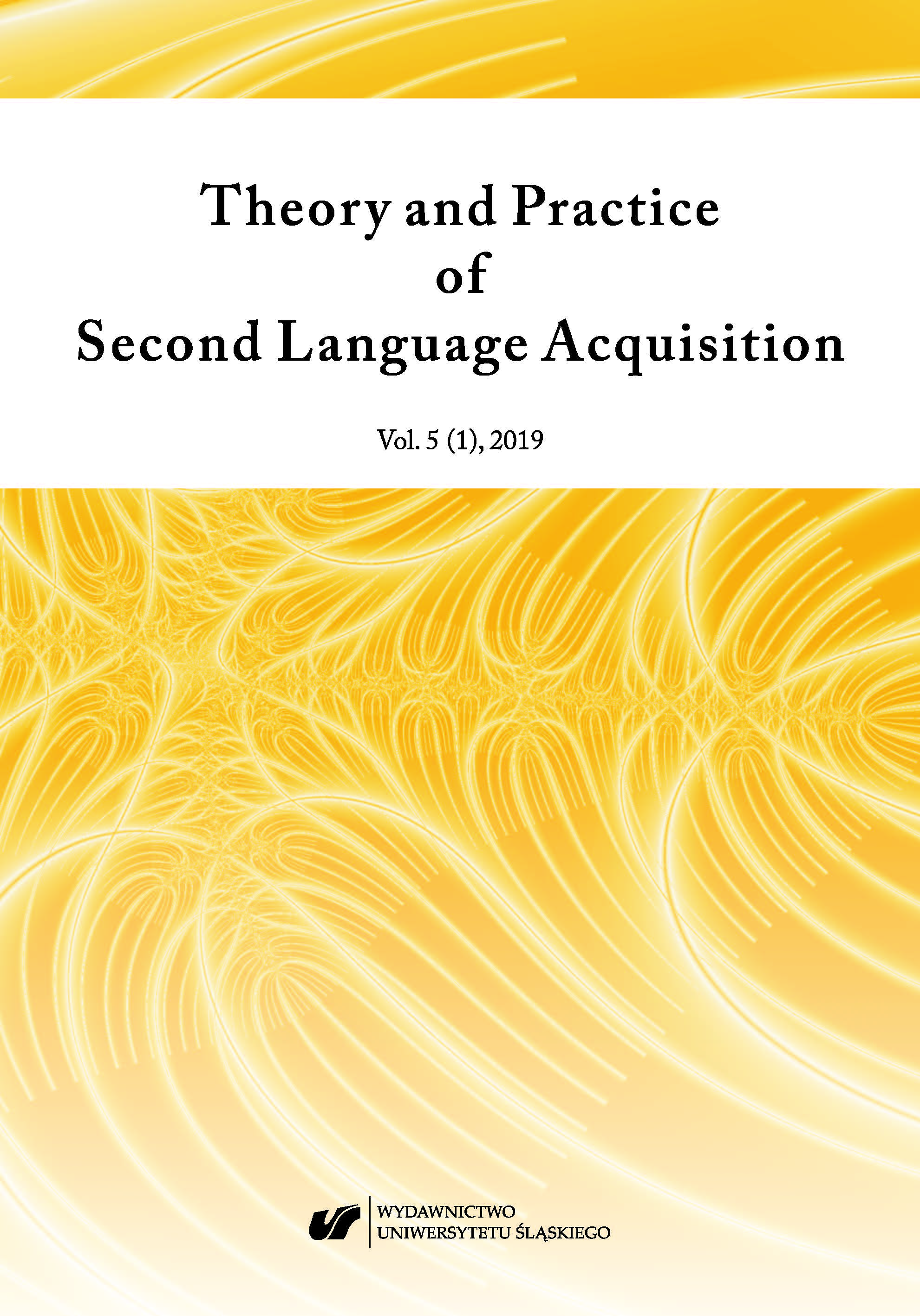Vol 5 No 1 (2019): Theory and Practice of Second Language Acquisition
The present issue opens with a study of the affective aspect of figurative language in the context of learning German by native speaker of Slovene. The paper by Teodor Petrič attempts to offer a descriptive and analytic framework for capturing the psycholinguistic (especially affective) dimensions of a large set of German idioms, as perceived by Slovene learners of German, and also to relate the research results to such earlier elaborations as Citron et al. (2015). The author hopes that the results will contribute to the development of our knowledge of the role of affect in a foreign/second language setting.
Humor undoubtedly possesses a high positive affective potential, which constitutes a thematic link to the second paper published in the present issue, the study by Krystyna Warchał titled “Humour in Professional Academic Writing.” The author explores the issue of apparent inherent incompatibility between humorous elements and the arguably mandatory solemnity of academic publications. She points to a number of reader-engaging strategies quite often used by authors of academic papers, which may potentially enhance the author-reader rapport and thus facilitate scholarly communication. The paper makes also an important educational contribution, in formulating a number of valuable recommendations for the ESL/EFL context, highlighting the human face of academic writing to the students of the subject.
The article “Poetry in Teaching Grammar to the Advanced Users of Polish as a FL” by Marzena S. Wysocka continues the theme of reconciling some apparently mutually exclusive factors in FLL, juxtaposing the alleged system-breaking nature of poetic language with the apparent rigidity of grammatical instruction. The subjects were learners of Polish as a foreign language at the School of Polish Language and Culture at the University of Silesia in Katowice, who responded very positively to the introduction of poetry as a kind of “grammar refresher,” creating opportunities for polishing up grammatical correctness and expanding their linguistic repertoire.
One of the very visible facts of contemporary European university education is the high volume of international student exchange, especially within the Erasmus+ framework. No wonder that it inspires research interests of representatives of many disciplines. The potential L2 linguistic gain resulting from a study placement abroad is put to test in a small-scale investigation, reported in a paper by Katarzyna Ożańska-Ponikwia, Angélica Carlet, and Maria Pujol Valls. The authors came to the conclusion that although Erasmus+ mobility is a very powerful factor contributing positively to the development of L2 speaking skill and grammar proficiency, it is definitely not the guarantee of success, as many other factors, such as language engagement, overall satisfaction from the Erasmus+ experience, as well as the amount and quality of language input outside the classroom influenced in an important way the ultimate potential gain.
The paper “Foreign Language Students’ Perceptions of their Identity” by Liliana Piasecka explores the dynamic character of foreign language learning process in the context of an alternative L2 language identity construction, experienced by students of English as a foreign language. The author highlights the positive aspects of this process, enumerating such beneficial effects as increased appreciation of English as a tool of cross-cultural communication, leading to the development of more open-minded attitude and tolerance. The new language identity obtained thanks to the development of English is described as prestige-building, self-confidence raising and mind-broadening factor.
The last research paper of the issue returns to the learning environment of the third-age language students, which has already been explored in a number of papers published in previous volumes. The study by Łukasz Matusz and Anna M. Rakowska focuses on the learning difficulties faced by senior participants of third-age university language courses organized by academic institutions in Silesia. Their past experience and awareness of own limitations guarantee reliable and valuable source of information for course developers aimed at this particular language group.
The issue concludes with two book reviews. One of them is the review of the monograph by Hadrian Lankiewicz, Teacher Language Awareness: A Collaborative Inquiry Based on Languaging (Wydawnictwo Uniwersytetu Gdańskiego, 2015), a volume worth of interest especially for FL teacher trainers in various educational centers concerned with the professional development of teachers at different levels: both at pre-service and at the in-service stage (reviewed by Danuta Gabryś-Barker), and a slightly earlier publication by Danuta Wiśniewska, Action Research in EFL Pedagogy: Theory and Analysis of Practice (Wydawnictwo Naukowe UAM, 2013), a work highly recommended not only for EFL teacher trainees and their instructors, but also for all teachers of English for whom constant reflection and self-development constitute indispensable ingredients of their professional career (reviewed by Ewa Piechurska-Kuciel).
(read more in the Preface)


